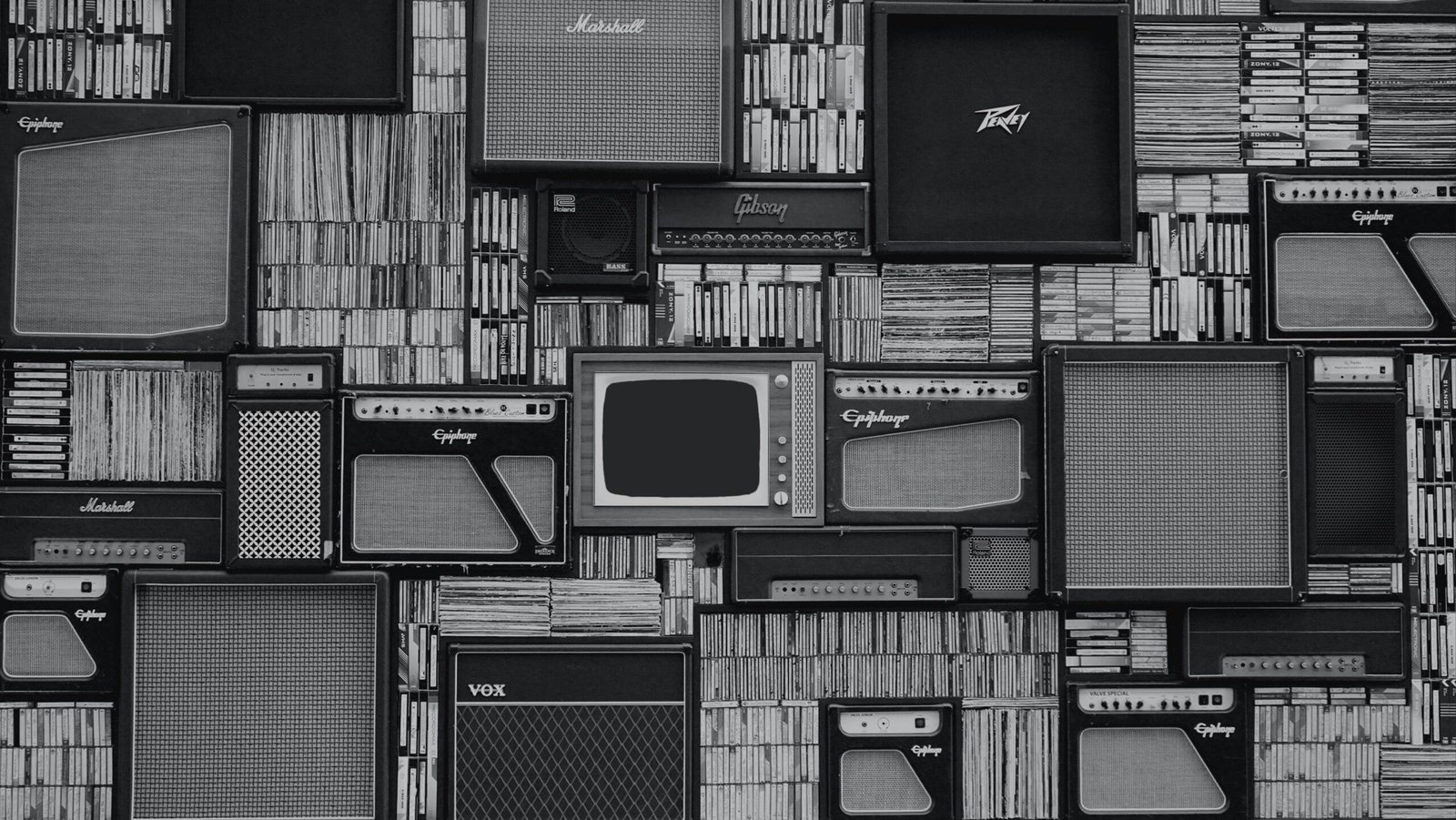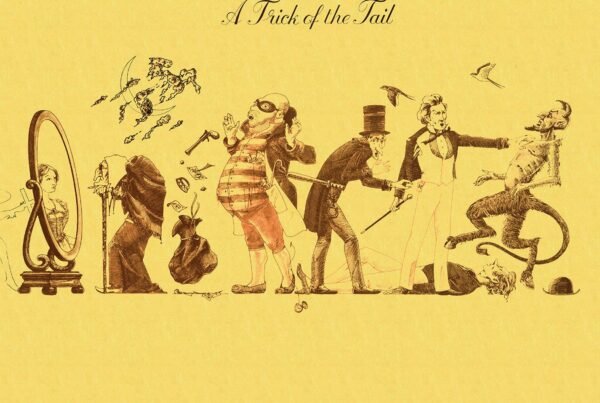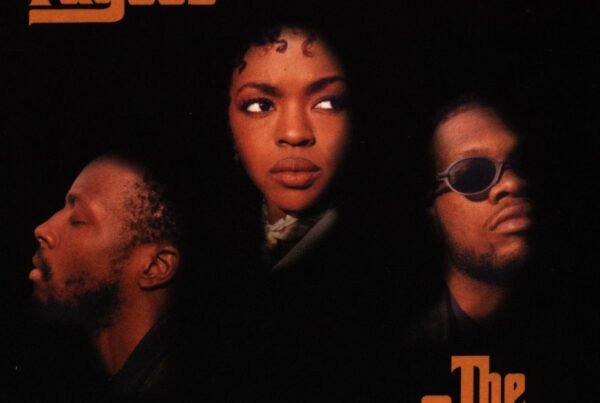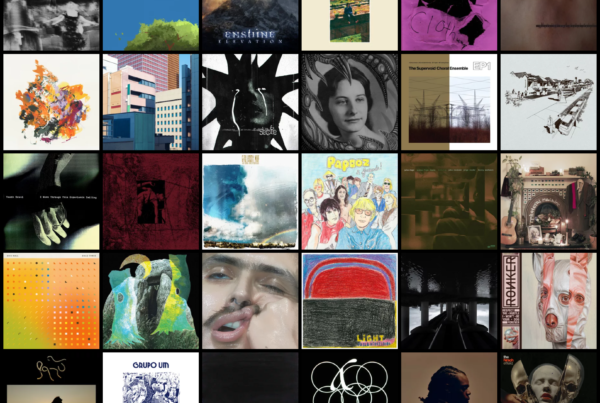Every year is wild. 1994 though, was especially wild. Nelson Mandala became the first black president of South Africa. The Rwandan Civil War culminated in a genocide by Hutu militia towards the ethnic group of the Tutsis. Kurt Cobain took his life.
Turbulent year. On the musical side of things, there were a couple of fantastic albums dropping in 1994, and we are gonna revisit some of them in this new episode of NOISE UPON A TIME!
Jeff Buckley – Grace
released August 23, 1994, via Columbia
revisited by Dominik Böhmer

Noise Upon A Time has reached 1994, the year of my birth, and I couldn’t be more excited. Internally, we at EIN have been discussing the sheer amount of fantastic records that have been released that year, and it has become very clear that it’s been a loaded 365 days in terms of quality and quantity. Thus, picking out one singular album from the truly ridiculous parade of masterpieces would’ve been quite the challenge if it hadn’t been for one particular release: Grace by Jeff Buckley, coincidentally one of my favorite records of all time.
Let me just do as the Germans (of which I am one) and fall into the house with the door: “Hallelujah”. Wow. Just wow. For me, this is the best song ever written, and Jeff Buckley’s the best version of it. Leonard Cohen might’ve penned it, and thank God he did, but Buckley brought it to life in the most beautifully understated way imaginable. One guitar, some perfectly utilized reverb, and one of, if not the greatest vocal performances in recorded music – that’s the quote-unquote ‘simple’ recipe to this utterly breathtaking, spellbinding interpretation. Many people have since tried to ape the power and sincerity of this version, but most of them failed. Horribly. Looking at you, Pentatonix.
Buckley, while admittedly displaying his range quite artistically, didn’t make it the whole point of “Hallelujah” to simply flaunt his chops and showmanship. He took the song to its deeply human core and made it resonate, and that’s the essence most of the talent show contestants that have followed in his wake were never able to grasp. It’s not about your voice – it’s about the feeling. It’s about the words. It’s about the song. But I digress.
“Corpus Christi Carol” is that one gem on Grace that I feel gets overlooked in most discourse about the album, and I wonder why that is. The vocal performance is once again absolutely stunning, and the minimal guitar accompaniment does nothing but highlight the sheer presence of Buckley’s voice. In his hands, this near-500 year-old hymn becomes timeless, ethereal, resplendent with the kind of beauty its anonymous original creator surely hoped it would achieve. There’s a delicate sense of humanity and the divine at play in this version, and I can’t get enough of it.
Rounding out the trio of cover songs on this album, “Lilac Wine” (originally written by James Shelton and widely popularized by the inimitable Nina Simone) sees Buckley pay a beautiful tribute to the mournful, longing tone of Simone’s interpretation; it’s the one that inspired him to record his own rendition, after all. The addition of a tasteful rhythm section sets it apart from the previous two covers, but it’s just as gentle and intimate. Buckley definitely knew to use the right tools for the right job, so to speak.
But Grace isn’t all dainty and fragile – there are some legitimate rock songs on here, too. “Mojo Pin” and the title track open the album with a burst of energy, while “So Real” and “Dream Brother” (that bass tone though!) rekindle that same powerful spark a bit further into the track list amidst a number of gorgeous slow-burners. This balance between bereft and boastful, brooding and boisterous, bewitched and brawny is struck perfectly by Buckley and his backing band, and it makes Grace that much more of an exciting experience than it might’ve been if it was any more lopsided towards one sound in particular.
As it stands, this album is a near-perfect amalgam of Buckley’s influences at that time. Drawing from various types of rock music, jazz, soul, folk, and more, he was able to channel his eclectic tastes into an approachable yet one-of-a-kind début record that will likely continue to stand the test of time for generations; with a voice like that at the helm of it, how could it not?
Jeff Buckley will be remembered for his unique vocal talents and budding prowess as a songwriter and interpreter of other people’s material. It’s a shame we’ll never get to hear where he was headed next with his creative gifts, but to me, that only means we have to cherish what he did manage to put out into the world with what little time was allotted to him even more. And I for one cherish Grace with all my heart.
Meshuggah – None
released November 8, 1994, via Nuclear Blast
revisited by Jake Walters
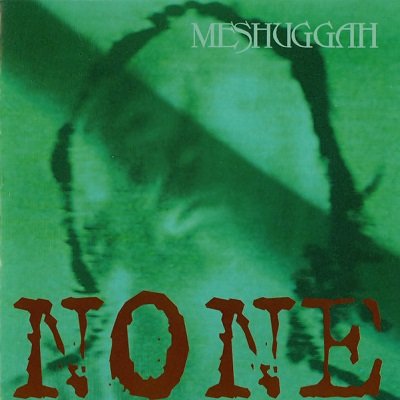
Our random year generator finally gifted me the year that I had been waiting for. I have been coiled like a cobra ready to pounce on this album as soon as 1994 was spat out and today is finally that day. I can’t imagine talking about a release that was as much ahead of its time as None was. In 1994, metal was in a bit of a death metal golden age both in Europe and in the US and black metal was thoroughly in its second wave heyday. Thrash in some ways was fading with bands like Metallica branching out into less intense approaches and the progressive metal scene was beginning to take shape with bands like Tool leading the charge.
What Meshuggah did was capitalize on their intensity with their debut LP, Contradictions Collapse, which in the eyes of many (myself included) was a thrash masterpiece that rivaled all other bands of that era. But with None, they turned the page to an entirely new approach which captured all of the goings-on in the metal sphere at the time and twisted them into some unrecognizable and brilliantly perverse version of progressive metal that doubled down on the rhythmic idiosyncrasies that are off-putting to some and hypnotic to others. I fall squarely into the latter category.
When it comes to how None introduces itself with its chirps, hissing, and electronic noises, followed by odd-metered riffs and chugging bass, there’s no doubt that the band wanted people to know that something new and different was about to land upon them. “Humiliative” was a brand new entity. This wasn’t the down the middle thrash that they had proffered before, this was some new kind of animal that feels as synthetic as it does organic. This hybrid blended the most extreme parts of metal vocals and instruments with rhythmic ideas that felt like something from a different planet. To this day, I think it’s one of the finest moments of a band proudly planting their flag in a new territory. I can’t imagine what it must have been like to grab a copy of this unheard and popping it into my cassette or CD player and expecting Contradictions Collapse 2.0 and getting something wildly, wildly different.
Some of the real trickeration appears later in the EP. “Sickening” employs even more odd time jumps, urgent vocal phrasing, and “Ritual” cleans up the guitar tone and lets Tomas Hakke play more on the toms in a track that feels more of the time but manages to break with the trends by including a jazzy interlude complete with affected vocals and a melodic guitar solo before diving headfirst back into the mosh-inducing moments as the song progresses. This track (and others like it) are more than likely what got Meshuggah tagged as progressive metal in the first place and in these moments, I agree they are even toying with the idea of ‘prog’ metal. ‘Prog’ as in the somewhat codified approach of progressive metal which tends to follow a certain set of rules even though the point of ‘progressive music’ is to not stick to a single approach. A genuine paradox. “Ritual” is a song that by today’s standards wouldn’t be what you’d expect to hear from Meshuggah, but boy howdy do they excel at it.
Immersing myself into None again just reminds me of how far ahead of the curve this release was. In terms of pure, tectonic shifts in metal, this is one of the largest of that era after Death’s Human and Atheist’s Unquestionable Presence. To come out of seemingly nowhere with these ideas – just listen to how every instrument on “Gods of Rapture” becomes percussion – and have them all so fully formed and still arguably be one of their best moments is an incredible explosion of creativity that still leaves me in awe amid its wake around me. This should have been a release where ideas were just thrown at the wall and none of them stuck. But they all stuck, every last one of them. This is the release that made Meshuggah, Meshuggah. “Aztec Two-Step” as the EP’s closer is as experimental as it is deranged. The voices, the rhythms, the empty space, the repetition, it’s all so feral and unhinged. And for some reason it calms me. I find peace in this chaos. This is the irony of Meshuggah.
Since None, their music has been calculated, thoroughly complex music on paper but all of this highly intelligent music appeals to my lizard and/or gorilla brain exclusively. Whenever I hear their music I want to flip tables and thrash about uncontrollably. None is Meshuggah’s rebirth, much in the way the Obscura was the second coming of Gorguts. None is where they found themselves and while they have inspired countless bands and movements over the years, no one can properly mimic their sounds, ideas, and execution. This is a special release that stands as one of the watershed moments of my musical journey and I am so glad that I finally have a forum to gush about it.
Rollins Band – Weight
released April 12, 1994, via Imago Records
revisited by Dom South
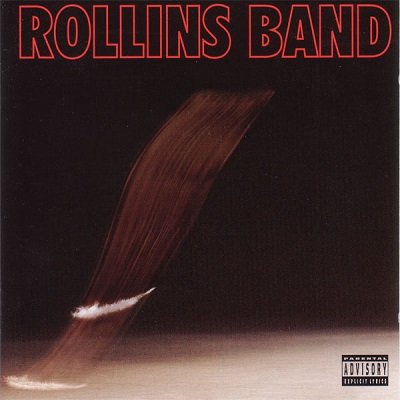
GQ recently published an article tracing the lineage if all hardcore bands who like the gym (specifically Turnstile and Harms Way) back to the hulking, shirtless figure of Henry Rollins. While this was a nonsensical take evidencing the strangeness that arises from mainstream interest in hardcore, it just goes to show how much Rollins’ image has endured. For me, Rollins Band’s output in the late ’80s and ’90s is what has best stood up to the test of time with 1994 seeing their greatest achievement Weight.
Their early works followed late-era Black Flag with more accomplished instrumentation, experimentation, and narration being introduced by 1992’s The End of Silence. Melvin Gibbs stepped in on bass, with the rhythm section completed by Sim Cain again around the core of Henry Rollins and his childhood friend, guitarist Chris Haskett. Gibbs was most known for his jazz work and was a much welcomed addition for Rollins as it allowed the band to really step up their work as a unit. The finished product on Weight is actually tame in terms of its jazz influence compared to the B Sides collection Weighting (including jams with saxophonist Charles Gayle), when you see why Rollins named himself after the jazz legend Sonny Rollins.
Musically, the band have moved beyond any recognition of their early post-hardcore stylings which followed Rollins late era Black Flag recordings. In terms of Black Flag comparisons, the closest it finds is a holistic version of Family Man a la “Armageddon Man”, especially with Rollins mix of shouted and spoken vocals. This period was when his storytelling was really taking its form, his now seminal Get In The Van was released in 1994 and you can tell that he was becoming a master of his craft. Lead single “Liar” is a mostly spoken song, with various shouts, noises, and laughs sprinkled throughout. Rollins leads the listener through a gaslighting session (before this was a mainstream term) about leading people on, giving an insight into how the mind works around people hearing what they want to hear as well as the other side of manipulation. The track epitomises the intriguing way in which the vocals are balanced across tracks between typical alternative rock vocals and more trademark Rollins thoughts in what became their signature song.
Beneath Rollins though, this band can play. The refrain in “Civilised” (which is adapted from a section from “Miles Jam #3” with Charles Gayle), with its reverb soaked grooves from Gibbs’ deep bass rumble and Rollins’s poetic take on police mentality and violence before it erupts back into overblown blues rock demonstrates that loud-quiet dynamic that helped grunge from the same period. Later in the album, the band create an almost ambient soundscape on “Tired”, with Gibbs’ bass meandering around Cain’s pensive and sparse drumming as Haskett’s guitar floats slightly menacingly over the top.
As a unit, they’re more like a platoon in full attack mode. Mixing these obvious instrumental chops with Rollins’ infamous aggressions is like mixing petrol with a match. In making their alternative metal heavy, with a strong groove and funky swagger beyond the vitriol, there are shades of the ’90s most famous powder keg Rage Against The Machine. On straight up attack tracks like “Icon” and “Divine”, they show off just how much they enjoy pulling the pin when it suits. Cain’s drumming is powerful and with Gibbs creates a rhythm section as powerful and heavy as any other of the time. Haskett’s guitar is as much a reminder of RATM as the funky rhythm section as his heavy and melodic riffing pulls from the same range of hard rock and metal influences as Tom Morello’s while the aggressive punk of Rollins’ vocals provide that classic bark to complete the sound.
Across their discography, Rollins Band evolved from post-hardcore, across alternative metal and blues rock with notable jazz and jam band influences as well. With the addition of Gibbs, this lineup released their masterpiece with Weight with a streamlined and exciting sound. Finding a balance across their sound as a band and Rollins vocals individually, Weight remains a classic that I find under appreciated. Compared to other efforts from the ’90s alternative scene or Rollins’ classic Black Flag releases, it remains a bit of an outlier and it deserves far more than that.
Scarface – The Diary
released October 18, 1994, via Rap-A-Lot/Noo Trybe
revisited by David Rodriguez
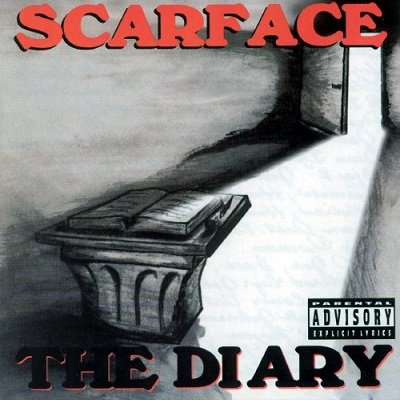
Scarface didn’t have a ton to prove at this point – being part of Geto Boys for years and establishing himself as a very capable solo artist with two prior albums already solidified him as part of rap’s golden year pantheon. Then The Diary came the fuck out in 1994.
The Diary is one of the coldest albums to ever exist. When pressed for a hard rap album, my mind is liable to land on this bad motherfucker right here. Commercially and critically successful, it’s a testament to never assume you’ve heard the best of good artists, especially when they’re as aggressively smooth as Scarface.
“No Tears” is the one song most people will know from this album. Canonized in the 1999 film Office Space (along with two other legendary Geto Boys songs), it soundtracks one of the funniest scenes of the movie, but stands tall as hell on its own. ‘Face weaves a violent tale of revenge and says some of the hardest bars I’ve ever heard:
‘Lookin’ for the ni**a who pulled his pistol on my homie
An eye for an eye, so now your life is what you owe me
Look deep into the eyes of your motherfuckin’ killer
I want you to witness your motherfuckin’ murder, ni**a
And since you wants to kill then your ass has gots to fry
But ain’t no police, therefore your ass has gots to die’
Scarface’s persona is in full effect on this album, as much a victim of the gangsta lifestyle he leads as he is a boss within it (I’d use the term ‘OG’, but dude was only 24 at the time of this album’s release which is wild to think about). “Jesse James”, “The White Sheet”, and “I Seen a Man Die” all provide interesting permutations on that formula – the last of the three arguably being the best for its somber storytelling and some classic flows from ‘Face – but there’s a fair but of diversity to be found on The Diary.
“One” goes hard as fuck with the bass and sees Scarface revisit his “Gangsta of Love” suave side, just a bit nicer about it this time though takes the “OPP” approach to picking up women; same with “Goin’ Down”. “Hand of the Dead Body” has an assist from Devin The Dude and Ice Cube, carrying a bit of direct and unabashed social commentary. Remember: this was the time where rap was being very much demonized after NWA and gangsta rap’s rise, but Scarface implores you to consider is the music really the problem?
‘They claim we threats to society
And now they calling on the government to try and make somebody quiet
For the bullshit they done to me
Gangsta Nip, Spice 1 or 2Pac never gave a gun to me
So gangsta rap ain’t done shit for that
I’ve even seen white folks from River Oaks go get the gat
So why you trying kick some dust up
America’s been always known for blaming us ni**as for they fuck-ups
And we were always considered evil
Now they trying to bust our only code of communicating with our people’
Cube’s verse is solid and more (understandably) vitriolic than even ‘Face’s, naming names and everything:
‘Do the Reverend Calvin Butts
Got a pair of nuts?
I started this gangsta shit in ’86
Now you dissing me for publicity
Isn’t he a hoe to the third degree
Who, me? I’m a G who like to scrap a lot
Down with Rap-A-Lot
And I can’t stop, won’t stop
So fuck Bill and Hillary’
Scarface even takes some time to create a worthy solo sequel to Geto Boys’ “Mind Playing Tricks On Me” with “Mind Playin’ Tricks 94”. The same guitar and bass lines are used, but re-recorded and just like the original track, it pairs that upbeat instrumental with very real, harrowing facets of living the life he does. His mother worries about him, but ‘Face’s street smarts see him through to end each day alive. He still contemplates suicide, but pushes on through sheer will. It ends on a somewhat positive note with Scarface telling us he wants to live to see his kids grow up and enjoy the time with a woman he found who can deal with him, referencing the original track in the process. A nice full-circle moment that calls back to his more humble beginnings.
1994 had a lot of great albums and it was hard to settle on one over others, until I remembered that The Diary came out then. There was no question at that point for me – it’s one of the best hip-hop albums of all time and helped make Scarface a GOAT in the game. It basks in ‘90s Houston flair with down South productions from NO Joe and Mike Dean (in addition to ‘Face himself) and an unmatched attitude that has influenced countless artists since its drop. You really, truly can’t get much better than this.



